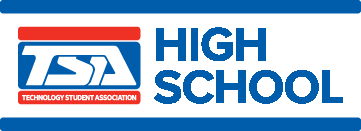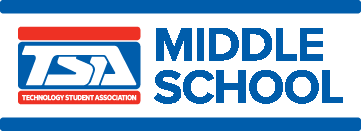In the High School Competitive Events Guide for the 2025 and 2026 National TSA Conferences, TSA offers 40 high school competitions. The eligibility chart provides the eligibility requirements for each competition and is applicable to the national TSA conference. (State delegations may choose to alter their events for local conferences. Click on your state to preview the requirements pertaining to your regional and/or state conferences.)
Transportation Modeling
Video Game Design
Virtual Reality Simulation (VR)
Webmaster
In the Middle School Competitive Events Guide for the 2026 and 2027 National TSA Conferences, TSA offers 37 middle school competitions. The eligibility chart provides the eligibility requirements for each competition and is applicable to the national TSA conference. (State delegations may choose to alter their events for local conferences. Click on your state to preview the requirements pertaining to your regional and/or state conferences.)

